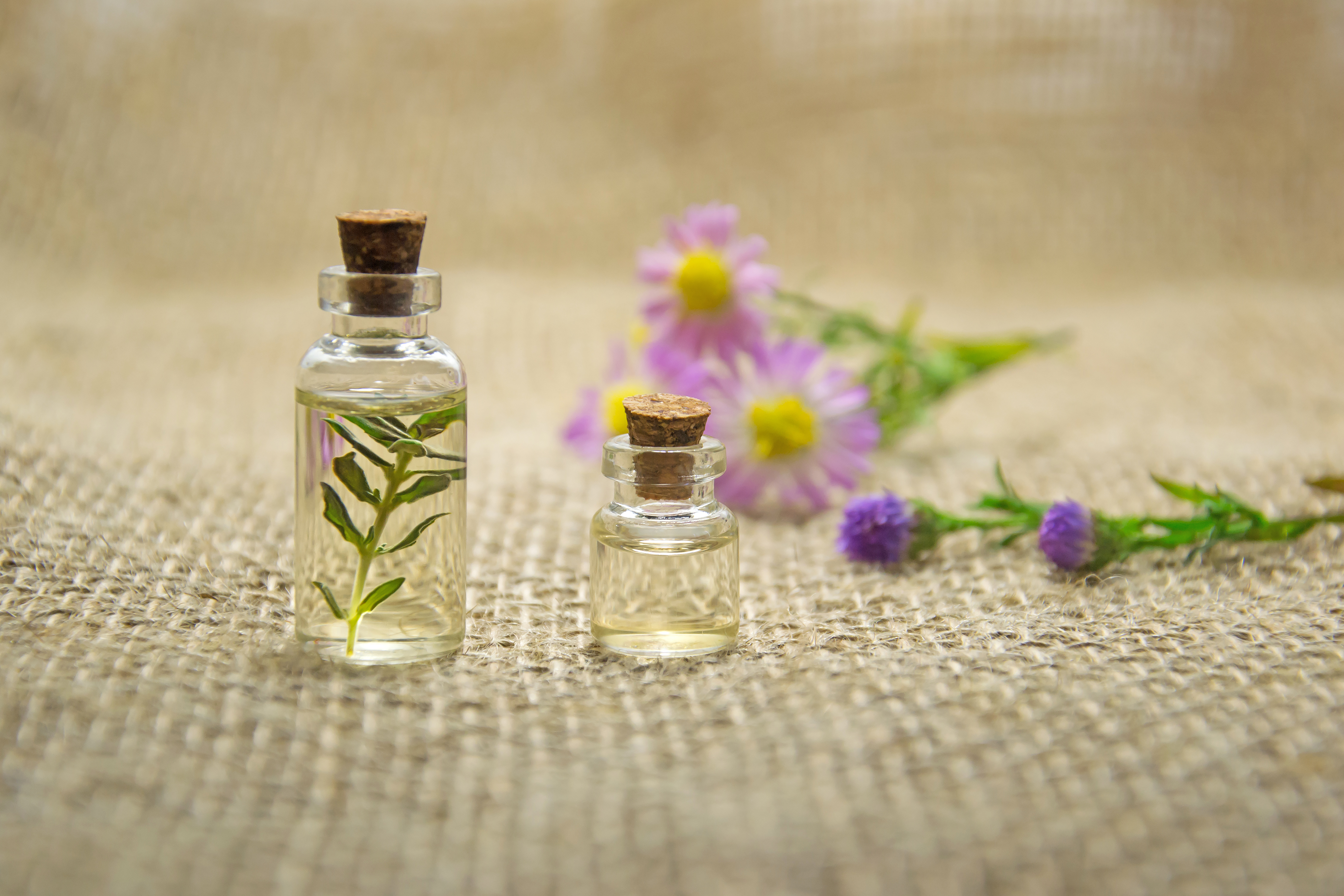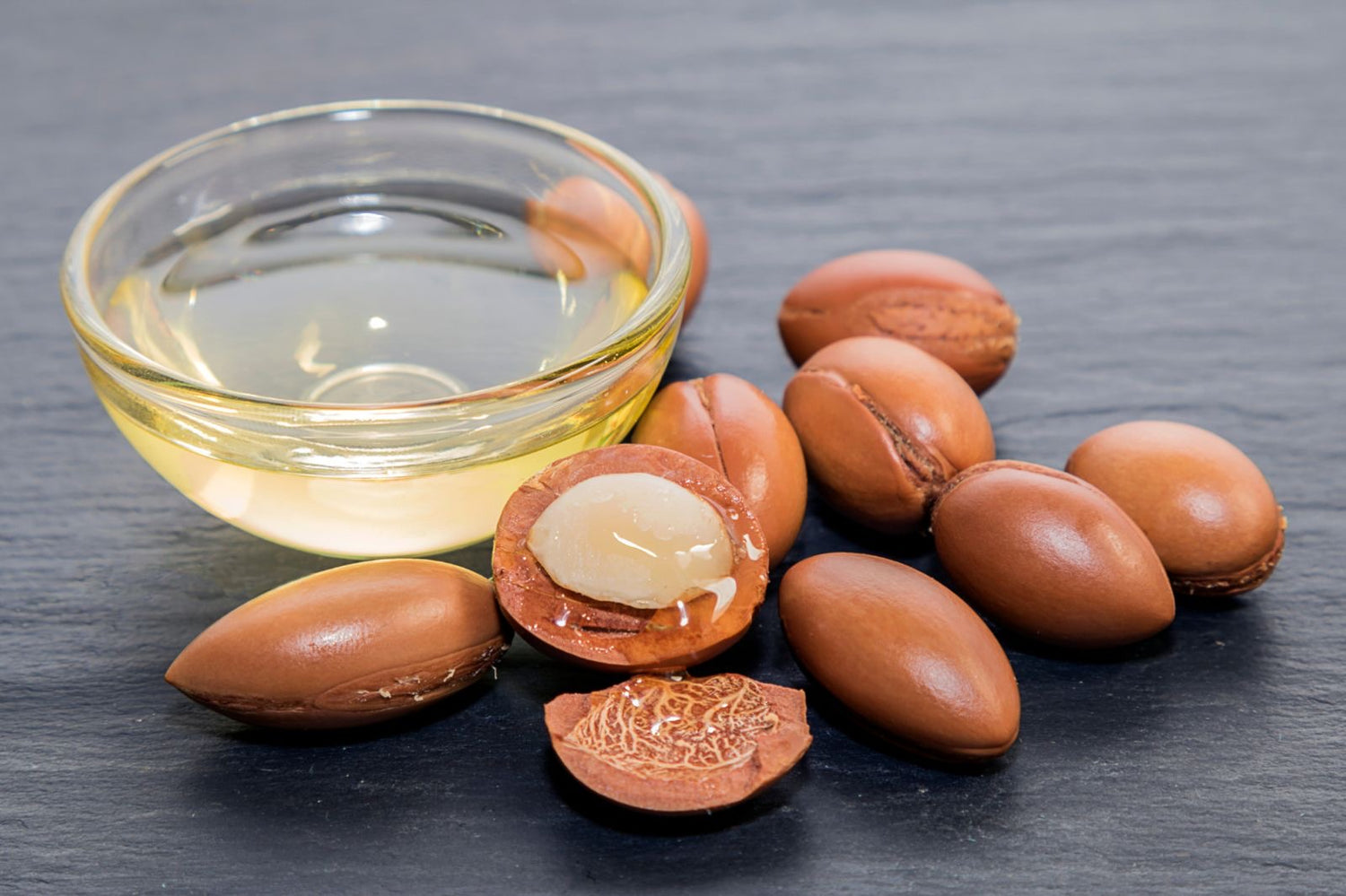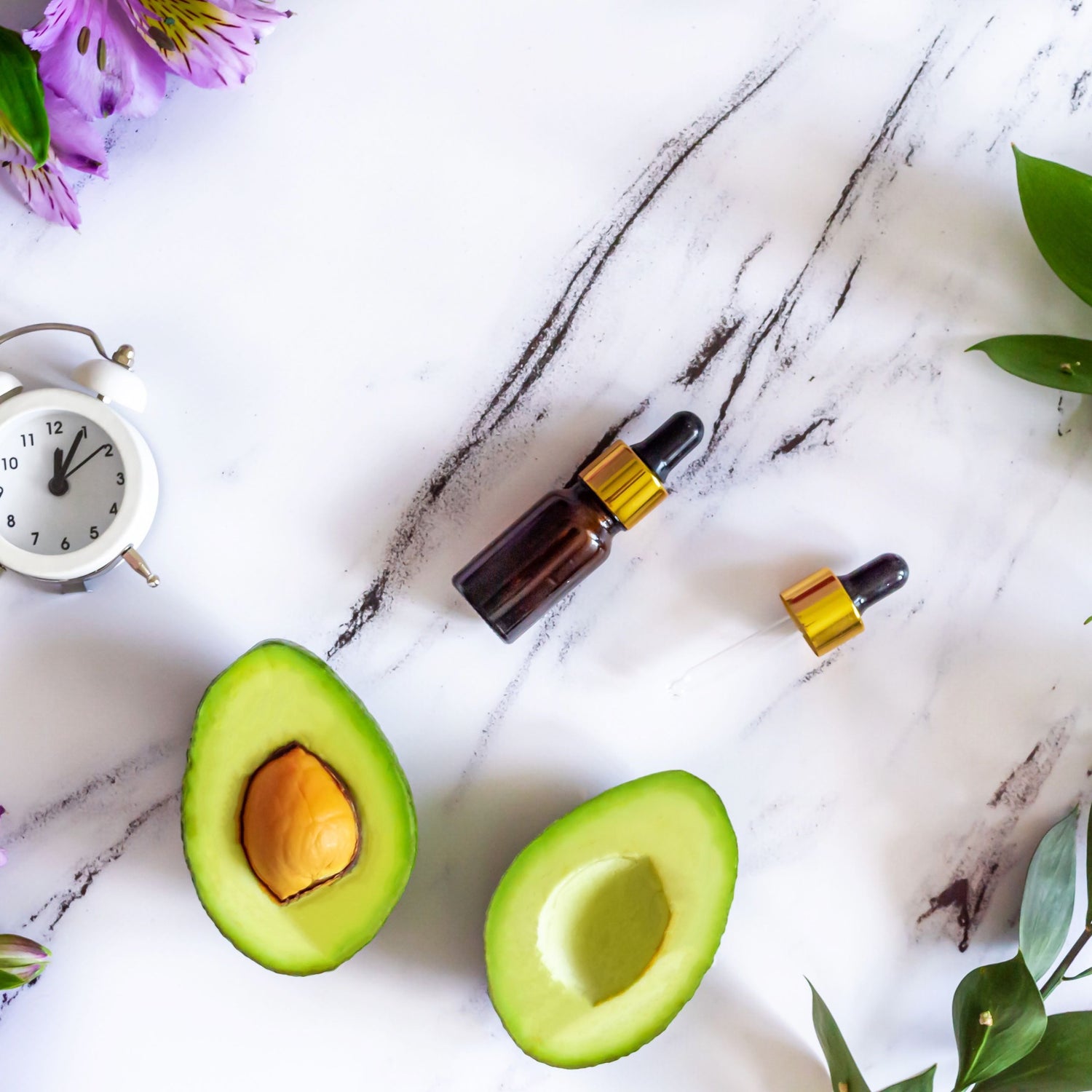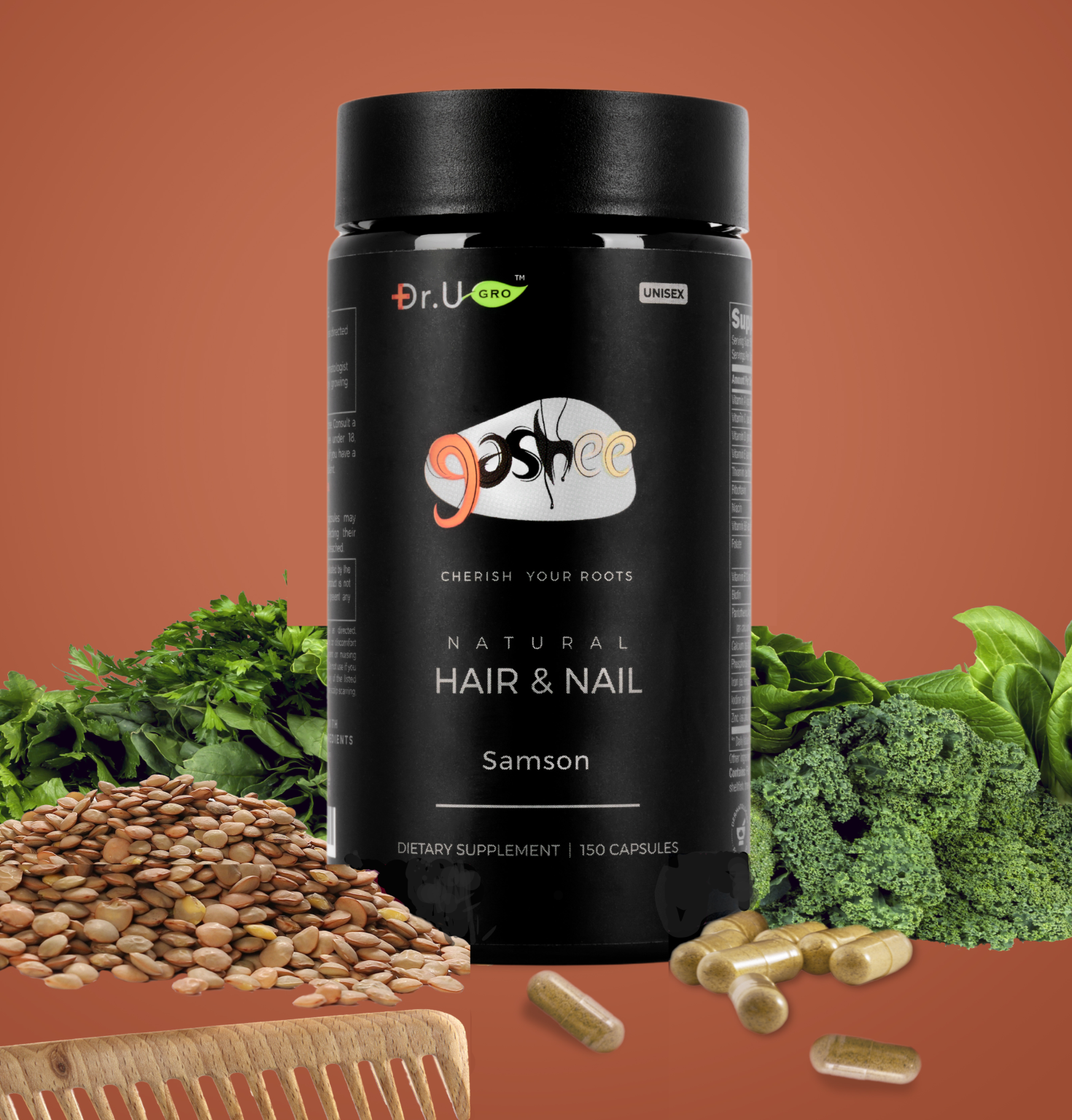If you are a lover of Mediterranean cuisine, you are no stranger to thyme. Thyme is a spice commonly used in many dishes to add a penetrating fragrance. Historically, thyme has been associated with bravery, strength, and courage. However, thyme hair treatments have also been popular throughout the ages. This leads to the question: Can thyme oil help improve hair health?

Thyme hair treatments have been prevalent throughout many societies for years. New research may help determine how thyme benefits hair health.
Overview of Thyme Oil as a Stimulant For Hair Growth
Thyme is a well-known natural stimulant, often used in various health remedies due to its ability to boost circulation. In general, stimulants improve blood flow, helping deliver more oxygen and nutrients to areas of the body that need it—including the scalp. When applied topically, thyme oil may enhance blood circulation to hair follicles, which in turn supports hair cells in producing new hair.
In addition to its circulatory benefits, thyme oil contains several bioflavonoids that play a crucial role in hair growth. These include apigenin and apigenin-7-glucoside—compounds that help protect hair follicles and stimulate the formation of new hair strands (1-5).
Applying thyme oil directly to the scalp as part of a topical treatment can help increase blood flow to this region, thereby promoting healthier hair growth and strengthening hair at the follicle level.
Interest in Natural Remedy for Dandruff using Thyme Oil
There are numerous shampoos marketed for treating dandruff, but many contain harsh chemicals that may irritate the scalp or strip it of its natural oils. Dandruff, which is essentially an overproduction of skin cells, can be triggered by several factors such as:
- Hair follicle inflammation
- Lack of vitamins
- Dry skin
- Chemical irritation from shampoos
For individuals seeking a more natural approach, thyme oil presents a promising alternative. Thanks to its anti-inflammatory properties—largely attributed to apigenin and apigenin-7-glucoside—thyme oil can help soothe the scalp and reduce inflammation in the hair follicles (1-5). These compounds also nourish the scalp and hair, addressing the dryness and irritation that often accompany dandruff.
Moreover, thyme oil’s active ingredient, thymol, has antibacterial and antifungal properties (3). By eliminating bacteria and germs that can cause inflammation, thymol creates a healthier environment for hair to grow. As a result, thyme oil not only combats dandruff but also strengthens hair follicles, contributing to overall scalp health.

Thyme hair treatments have been as DIY home remedies for hair thinness and hair health. New research looks into the compounds within thyme essential oil, such as flavonoids and thymol, to observe a basis for these assumptions (3, 4, 5)
Thyme Hair Treatments for Thinness
Hair thinning is a common problem that affects both men and women around the world. According to a 2007 study, about 1 in 3 women experiences hair thinning at some point in their lives (2). Thinning hair can be caused by several internal and external factors, such as:
- Hair follicle inflammation
- Poor diet
- Bacterial buildup
- Stress
- Exposure to chemicals (e.g., from tap water or hair products)
- Hormonal imbalances
Studies have shown that thyme oil’s thymol compound has strong antiseptic properties, which help eliminate harmful bacteria, fungi, and microbes that can accumulate on the scalp (3). When left unchecked, these microbes can cause infections, block hair follicles, and ultimately lead to hair shedding and thinning. Thymol works by breaking down the cell walls of these microorganisms, thereby clearing any blockages and preventing scalp infections. This helps maintain hair density and reduces the risk of thinning.
Does Thyme Oil Benefit Hair?
Several studies suggest a positive link between thyme oil and hair growth. Research shows that thyme oil may contribute to healthier hair by improving circulation, reducing inflammation, and protecting against microbial infections (1-5). Although more studies are needed to fully understand the mechanisms involved, current findings support the potential of thyme oil to promote stronger, healthier hair.
Use of Thyme Oil as a Treatment for Alopecia Areata
Alopecia areata is an autoimmune condition in which the immune system mistakenly attacks hair follicles, leading to hair loss. One notable study explored the effects of a topical herbal treatment that included thyme oil for patients with this condition. In the study led by Hay IC, a combination of essential oils was used, including 114 mg of rosemary, 88 mg of thyme, 108 mg of lavender, 94 mg of cedarwood, 3 mL of jojoba oil, and 20 mL of grapeseed oil (4).
Eighty-six patients with alopecia areata participated in this trial. The study divided participants into two groups—one group used the essential oil mixture, while the control group applied only carrier oils. After seven months, with follow-ups between three to seven months, the results showed that the group using the essential oil treatment saw significant improvements in hair growth. Specifically, 19 out of 43 patients (44%) in the treatment group experienced hair growth, compared to only 6 out of 41 (15%) in the control group (4).
While the treatment involved a blend of multiple oils, the exact role of thyme oil in the positive outcome remains unclear. However, this study provides a foundation for further research into thyme oil's efficacy in treating alopecia areata. The results suggest that natural oil treatments, including thyme oil, may offer a safe and effective alternative for individuals with hair loss.
References
- Journal of Cosmetic Science. (2009). Study on bioflavonoid compounds in thyme and their role in stimulating hair growth.
- International Journal of PharmTech Research. (2014). The anti-inflammatory properties of bioflavonoids in essential oils and their application in hair loss treatments.
- Hay, I.C., Jamieson, M., & Ormerod, A.D. (1998). Randomized trial of aromatherapy: Successful treatment for alopecia areata. Archives of Dermatology.
- Journal of Essential Oil Research. (2016). The antimicrobial properties of thymol in thyme essential oil and its benefits for scalp health.
- International Journal of Trichology. (2012). Review on the efficacy of essential oils, including thyme, in treating hair loss conditions.




